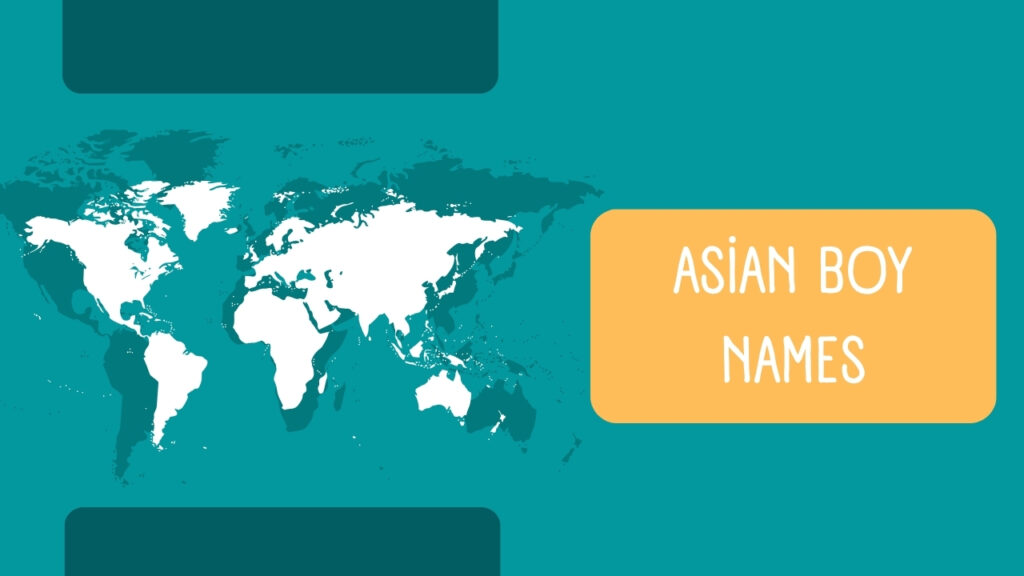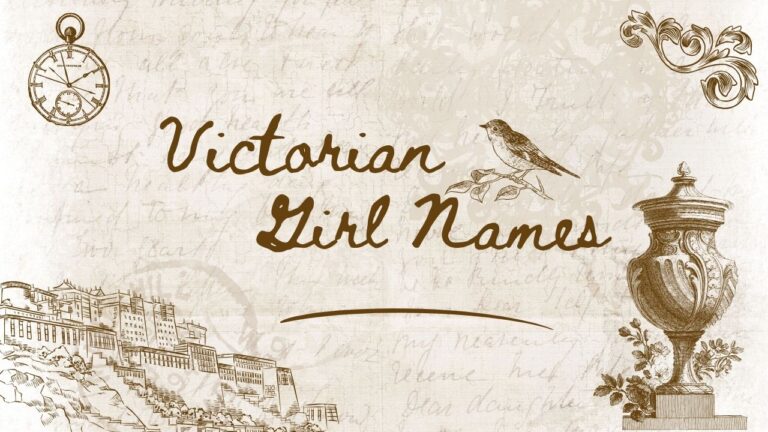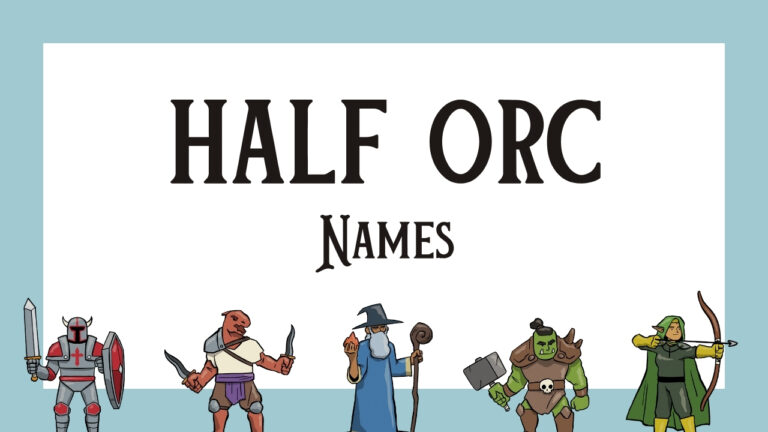150+ Asian Boy Names: Unique, Modern, Popular & Spiritual
Choosing the right name for a baby is a special part of parenthood, and when it comes to Asian boy names, there is a wide range of beautiful choices. From unique Asian boy names that stand out to modern Asian boy names that reflect today’s trends, each name carries its own story and charm.
Many parents also look for popular Asian boy names that are widely loved across different cultures or lean towards cute Asian boy names that feel gentle and warm. In this guide, you’ll discover meaningful names from across Asia that blend tradition, personality, and style perfectly.
Also Read:130+ Japanese Names for Snow – Spiritual & Historical Meanings

unique Asian boy names
- Aariz (Arabic) – A respected, intelligent man; known for wisdom.
- Haruki (Japanese) – “Shining sun” or “spring tree,” symbolizing growth and brightness.
- Tenzin (Tibetan) – “Holder of teachings”; often used in Buddhist culture.
- Raviansh (Indian/Sanskrit) – “Part of the sun”; a radiant and spiritual name.
- Zameer (Arabic/Urdu) – Represents conscience, integrity, and moral strength.
- Minjun (Korean) – A creative and bright name, often meaning “clever” or “handsome.”
- Ananta (Sanskrit) – Meaning “infinite” or “eternal,” symbolizing timelessness.
- Eiji (Japanese) – “Eternal ruler” or “second-born son”; has a strong and noble feel.
- Firdaus (Persian/Urdu) – “Paradise” or “heavenly,” with a divine tone.
- Iskandar (Malay/Indonesian) – A regional form of Alexander, meaning “defender of mankind.”
- Luqman (Arabic) – A wise figure in Islamic tradition, known for his advice and intellect.
- Raijin (Japanese) – Inspired by the god of thunder and storms in mythology.
- Sachin (Indian) – A name associated with purity and often linked to Lord Shiva.
- Daisuke (Japanese) – Means “great help” or “big support,” expressing kindness.
- Azlan (Turkish/Urdu) – Means “lion”; conveys bravery and leadership.
- Namjoon (Korean) – Known for intelligence and leadership; also popularized by K-pop.
- Nirav (Sanskrit) – Means “quiet” or “silent,” symbolizing calmness and depth.
- Hiroki (Japanese) – “Vast tree” or “great strength”; reflects resilience.
- Faizan (Urdu) – Refers to blessing, grace, or generosity.
- Arvid (Indian variant) – A blend of strength and uniqueness; rare in modern times.
- Suhan (Hindi/Sanskrit) – Meaning “good-looking” or “pleasant.”
- Aibek (Kazakh/Kyrgyz) – “Moon master” or “lord of the moon”; poetic and powerful.
- Tadashi (Japanese) – Represents loyalty, correctness, and truthfulness.
- Zenel (Balkan/South Asian roots) – A lesser-known name meaning “dedicated” or “noble.”
- Wira (Indonesian/Malay) – Means “hero” or “warrior”; reflects bravery and honor.
popular Asian boy names
- Arjun (Indian) – A heroic figure in the Mahabharata, symbolizing strength and focus.
- Joon (Korean) – A common element in Korean names, often meaning “handsome” or “talented.”
- Kenji (Japanese) – Means “intelligent second son” or “strong and vigorous.”
- Ali (Arabic) – A classic name meaning “high” or “exalted”; widely used across Asia.
- Yusuf (Arabic/Turkish) – Equivalent to Joseph; means “God increases” and symbolizes kindness.
- Siddharth (Indian) – The birth name of Buddha, meaning “one who has achieved his goals.”
- Jun (Chinese/Korean) – In Chinese, it can mean “king” or “handsome”; in Korean, “talented.”
- Hiroshi (Japanese) – A traditional name meaning “generous” or “prosperous.”
- Bilal (Arabic) – Known for being the first muezzin in Islamic history; means “moist” or “fresh.”
- Kaito (Japanese) – Means “ocean flying” or “sea and sky,” popular in Japan.
- Ayaan (Urdu/Arabic) – Means “gift of God” or “blessing,” widely used in South Asia.
- Wei (Chinese) – A commonly used name meaning “greatness” or “power.”
- Taeyang (Korean) – Meaning “sun”; also known globally through K-pop culture.
- Rohan (Indian) – Means “ascending” or “blossoming”; very common across India.
- Farhan (Urdu/Arabic) – Means “joyful” or “cheerful,” a name full of positivity.
- Takumi (Japanese) – Means “artisan” or “skillful,” reflecting creativity and talent.
- Irfan (Arabic/Urdu) – Stands for “knowledge” or “awareness.”
- Zaid (Arabic) – Means “growth” or “abundance”; popular in Muslim communities.
- Haruto (Japanese) – Common in Japan; meaning includes “sun” or “spring.”
- Rehan (Arabic/Urdu) – A fragrant plant; symbolizes grace and freshness.
- Jayden (Modern/Global) – Popular in Asian-American communities; means “thankful.”
- Anwar (Arabic) – Means “radiant” or “luminous,” symbolizing enlightenment.
- Ming (Chinese) – Means “bright” or “clear,” a classic and respected name.
- Sung-hoon (Korean) – Combines meanings like “success,” “goodness,” or “nobility.”
- Pranav (Indian) – A sacred name referring to the sound “Om,” symbolizing the universe.
modern Asian boy names
- Zayyan (Arabic) – Stylish and radiant; often associated with beauty and grace.
- Renzo (Japanese/Italian blend) – A modern-sounding name in Japan meaning “third link” or “lotus.”
- Akeem (Arabic origin, used in South Asia) – Meaning “wise” or “intelligent.”
- Taru (Indian/Unisex) – Meaning “small plant” or “tree,” symbolizing growth and life.
- Ryker (Adopted in Asian-Western mix families) – Means “strong power”; gaining popularity in Asia.
- Aahil (Arabic/South Asian) – Meaning “prince” or “leader”; short, modern, and powerful.
- Yoel (Hebrew/Asian use) – Meaning “God will be willing”; increasingly seen in Asian-Jewish communities.
- Zihan (Chinese) – Modern name meaning “child of wisdom” or “refined and courteous.”
- Kairo (Modern Global/Asian blend) – A sleek and fresh name, loosely inspired by “Cairo,” meaning “victorious.”
- Vedant (Indian) – A modern favorite meaning “ultimate knowledge” or “sacred conclusion.”
- Riku (Japanese) – Means “land” or “continent”; short, modern, and popular in anime culture.
- Eshan (Indian) – Meaning “lordly” or “desiring,” with a modern and smooth feel.
- Nayel (Arabic/Urdu) – Meaning “winner” or “achiever”; growing in popularity in South Asia.
- Taiki (Japanese) – Meaning “great radiance” or “big shine”; sounds modern and celestial.
- Zoren (Modern Filipino) – A fresh, invented name that sounds global and trendy.
- Reizo (Japanese) – Modern and energetic, meaning “cool, calm, and respectful.”
- Devansh (Indian) – Meaning “part of the divine,” widely used in modern Indian households.
- Ilham (Arabic/Indonesian) – Meaning “inspiration,” common in Southeast Asian Muslim families.
- Jaziel (Modern/Arabic-Latin mix) – Meaning “God apportions,” fresh and gaining global attention.
- Ashvik (Indian) – A trendy name meaning “blessed and victorious.”
- Kael (Modern Korean-American blend) – Strong-sounding, meaning varies by region, often used for its cool tone.
- Haider (Arabic/South Asian) – Means “brave” or “lion”; now gaining traction among young parents.
- Tajir (Arabic/Urdu) – Meaning “prosperous” or “wealthy”; sleek and stylish.
- Yuto (Japanese) – Popular modern choice meaning “gentle person” or “courageous.”
- Davin (Modern/Global) – A name gaining popularity in Asian-American households; means “beloved” or “smart.”
cute Asian boy names
- Aaru (Indian) – Short and soft, meaning “peaceful” or “calm.”
- Haru (Japanese/Korean) – A cheerful name meaning “spring” or “day,” perfect for a bright personality.
- Iman (Arabic/Urdu) – Means “faith” or “belief”; simple, pure, and gentle.
- Bo (Chinese) – A cute and minimal name, meaning “precious” or “waves.”
- Miko (Japanese/Unisex) – Means “beautiful child” or “blessed child.”
- Rafi (Arabic/South Asian) – Meaning “kind,” “gentle,” or “exalted”; light and affectionate.
- Yuki (Japanese) – Means “happiness” or “snow,” offering a soft and serene feel.
- Tomo (Japanese) – Meaning “friend,” perfect for a loving and sociable child.
- Nobi (Japanese) – A playful-sounding name, meaning “stretch” or “growth.”
- Nilo (Filipino/Spanish-Asian) – Meaning “blue” or “sky,” gentle and colorful.
- Ashi (Indian) – Meaning “smile” or “joy,” radiating cuteness and warmth.
- Omaru (Japanese-inspired) – A soft-sounding name, loosely meaning “circle of protection.”
- Zaki (Arabic) – Meaning “pure” or “innocent”; sweet and wholesome.
- Luan (Chinese/Vietnamese) – Means “moon” or “justice”; soft yet graceful.
- Rami (Arabic/Indian) – Meaning “archer,” but has a cuddly, easy tone.
- Tariq (Arabic/Urdu) – Meaning “morning star”; sounds soft yet meaningful.
- Eito (Japanese) – Modern and gentle, often meaning “prosperous person.”
- Kimi (Japanese) – A loving name meaning “noble” or “precious.”
- Hanan (Arabic) – Means “compassion” or “tenderness.”
- Bomi (Korean, unisex) – Meaning “springtime,” very soft and seasonal.
- Mika (Japanese/Hebrew roots) – Means “beautiful fragrance” or “gift from God.”
- Rishi (Indian) – A gentle name meaning “sage” or “seer,” with a spiritual charm.
- Taki (Japanese) – Meaning “waterfall,” symbolizes calm and gentleness.
- Zeen (Modern/Urdu inspired) – A soft, trendy name meaning “beauty” or “grace.”
- Lior (Hebrew/Asian blend) – Meaning “light,” delicate and sweet in sound and meaning.
spiritual Asian boy names
- Omkar (Sanskrit/Indian) – Refers to the sacred sound “Om,” representing the essence of the universe.
- Nuriel (Arabic/Hebrew) – Meaning “light of God,” often associated with divine guidance.
- Ashwatth (Sanskrit) – Refers to the sacred fig tree; symbolizes eternal life and wisdom.
- Baran (Persian) – Means “rain”; spiritually linked with purity, mercy, and blessings.
- Chaitanya (Sanskrit) – Meaning “consciousness” or “divine energy.”
- Ilhamuddin (Arabic/Urdu) – Means “divine inspiration of the religion.”
- Kensho (Japanese Zen) – Refers to “seeing one’s true nature” or spiritual awakening.
- Samyak (Sanskrit) – Means “right” or “true” in spiritual philosophy, often linked with correct path in Buddhism.
- Tenzing (Tibetan) – Means “holder of teachings,” often used among Tibetan monks.
- Rahmat (Arabic/Urdu) – Meaning “mercy” or “blessing” from the divine.
- Bodhi (Sanskrit/Buddhist) – Means “awakening” or “enlightenment,” associated with Buddha.
- Yazdan (Persian) – An ancient spiritual term meaning “divine” or “God-like.”
- Anugrah (Sanskrit) – Means “divine favor” or “grace.”
- Zuhair (Arabic) – Associated with purity and bright spiritual light.
- Lokesh (Sanskrit/Indian) – Meaning “lord of the world,” often linked with spiritual leadership.
- Shafi (Arabic) – Means “healer” or “intercessor,” connected with mercy and divine healing.
- Aravind (Sanskrit) – Means “lotus,” a sacred flower representing spiritual purity.
- Salik (Arabic) – Refers to “a spiritual traveler” or seeker on the Sufi path.
- Mehul (Indian) – Means “rain cloud”; symbolically tied to blessings and renewal.
- Hosein (Arabic/Persian) – A revered name in Islam, symbolizing sacrifice, piety, and devotion.
- Nimai (Bengali/Sanskrit) – Refers to a form of Lord Chaitanya, symbolizing divine love.
- Jianyu (Chinese) – Means “build the universe”; suggests divine creation or spiritual strength.
- Siddiq (Arabic) – Meaning “truthful” or “righteous,” often used for spiritually upright individuals.
- Devadatta (Sanskrit) – Means “given by God”; historically tied to stories in Buddhist scriptures.
- Yuwan (Chinese) – A poetic name meaning “deep grace” or “gentle essence.”
religious Asian boy names
- Eshanul (Arabic/Bengali) – Means “grace of God,” often used in Islamic families.
- Narasimha (Sanskrit/Hindu) – The lion-headed avatar of Lord Vishnu, symbolizing protection and divine strength.
- Youhanan (Syriac/Christian) – An Asian variation of “John,” meaning “God is gracious.”
- Amrit (Sanskrit/Sikh) – Means “divine nectar” or “immortality,” central to Sikh and Hindu faiths.
- Moinuddin (Arabic) – Means “helper of the faith”; used historically among Sufi scholars.
- Sarvajit (Sanskrit) – Means “conqueror of all,” often linked with divine victory in Hindu epics.
- Shamsuddin (Arabic) – Meaning “sun of the religion”; often used by scholars and spiritual leaders.
- Yeshu (Hindi/Christian) – A widely used name for Jesus in Indian Christian communities.
- Aditya (Hindu/Sanskrit) – Refers to the Sun God, symbolizing light, power, and truth.
- Qasim (Arabic) – One who distributes or shares; name of the Prophet Muhammad’s son.
- Sanat (Sanskrit) – An eternal being; mentioned in Hindu scriptures as one of the four Kumaras.
- Malachi (Hebrew/Christian-Asian) – Means “my messenger”; growing in Christian families in Asia.
- Zulkifl (Arabic) – A prophet mentioned in the Quran, known for righteousness and patience.
- Raguel (Christian/Philippine/Latin) – An angel’s name meaning “friend of God.”
- Tejendra (Sanskrit) – Meaning “lord of divine energy,” rooted in Hindu tradition.
- Abdul Majeed (Arabic) – Meaning “servant of the Glorious (God),” commonly used among Muslims.
- Chinmayan (Sanskrit/Hindu) – Means “full of divine consciousness.”
- Gethsemane (Christian/Asian usage) – Symbolic name referring to the garden where Jesus prayed.
- Balavendra (Tamil/Sanskrit) – Name for Lord Krishna as a child; symbolizes innocence and divinity.
- Jibrael (Arabic/Islam) – Islamic version of the archangel Gabriel, messenger of revelation.
- Aghosh (Urdu/Persian) – Means “embrace,” symbolizing divine protection and mercy.
- Dhruva (Hindu/Sanskrit) – A devout child saint who became the Pole Star through devotion to Vishnu.
- Levi (Hebrew/Christian-Asian) – An increasingly popular Biblical name in Asian Christian communities.
- Saiyam (Sanskrit/Jain) – Means “self-restraint,” a highly valued spiritual trait in Jain and Hindu ethics.
- Mikail (Arabic/Islam) – An angel’s name in Islam who oversees rain and sustenance.
historical Asian boy names
- Ashoka (Indian) – A great Mauryan emperor known for spreading Buddhism after a life of conquest.
- Baybars (Turkic/Mamluk) – A powerful warrior and Sultan of Egypt, known for defeating Mongols and Crusaders.
- Nobunaga (Japanese) – Refers to Oda Nobunaga, a major daimyo who unified much of Japan in the 16th century.
- Suleiman (Ottoman Turkish) – “Suleiman the Magnificent,” one of the greatest sultans of the Ottoman Empire.
- Gautama (Sanskrit) – The birth name of the Buddha, Siddhartha Gautama, a historical and spiritual icon.
- Zheng He (Chinese) – A legendary Ming Dynasty explorer and admiral who led massive naval expeditions.
- Tipu (Indian) – Tipu Sultan, the “Tiger of Mysore,” known for resisting British colonization.
- Akbar (Mughal) – Akbar the Great, a visionary Mughal emperor who promoted unity and religious tolerance.
- Hideyoshi (Japanese) – Toyotomi Hideyoshi, a unifier of Japan following the Sengoku period.
- Attar (Persian) – Refers to Fariduddin Attar, a mystical Persian poet and Sufi philosopher.
- Ismail (Persian) – Shah Ismail I founded the Safavid dynasty and made Twelver Shi’ism the state religion of Iran.
- Tamerlane (Turkic-Mongol) – Also known as Timur, a conqueror who established a vast Central Asian empire.
- Dogen (Japanese) – A 13th-century Buddhist monk and philosopher who founded the Soto Zen school.
- Nurhaci (Manchu) – Founder of the Qing Dynasty in China, who unified the Jurchen tribes.
- Rama (Hindu/Indian) – A legendary prince and incarnation of Vishnu from the epic Ramayana.
- Bozorgmehr (Persian) – A wise vizier during the Sasanian Empire, known for his intellect and justice.
- Ali Sher (Timurid) – Ali Sher Nava’i, a Central Asian poet and politician who advanced Turkic literature.
- Qin (Chinese) – Refers to Qin Shi Huang, the first emperor of a unified China, famous for the Terracotta Army.
- Chandragupta (Indian) – Founder of the Maurya Empire, unified large parts of India.
- Puli Thevar (Tamil) – An early Indian freedom fighter who resisted British rule in South India.
- Avicenna (Persian/Arabic: Ibn Sina) – A polymath and physician, major figure in Islamic Golden Age.
- Itagaki (Japanese) – Refers to Itagaki Taisuke, a political reformer and one of the founders of Japan’s liberal movement.
- Kanishka (Indian-Kushan) – A great emperor of the Kushan dynasty known for promoting Buddhism across Asia.
- Anawrahta (Burmese) – The founder of the Pagan Empire in Myanmar and a promoter of Theravada Buddhism.
- Yi Sun-sin (Korean) – A revered naval commander known for victories against Japanese invasions using turtle ships.
Conclusion
Exploring Asian boy names offers a rich journey through history, culture, and meaning. From traditional and spiritual roots to modern and charming options, each name reflects a unique identity and story. Whether you’re drawn to the strength of historical figures, the peace of spiritual names, or the freshness of modern trends, there’s a meaningful name waiting to be discovered.






